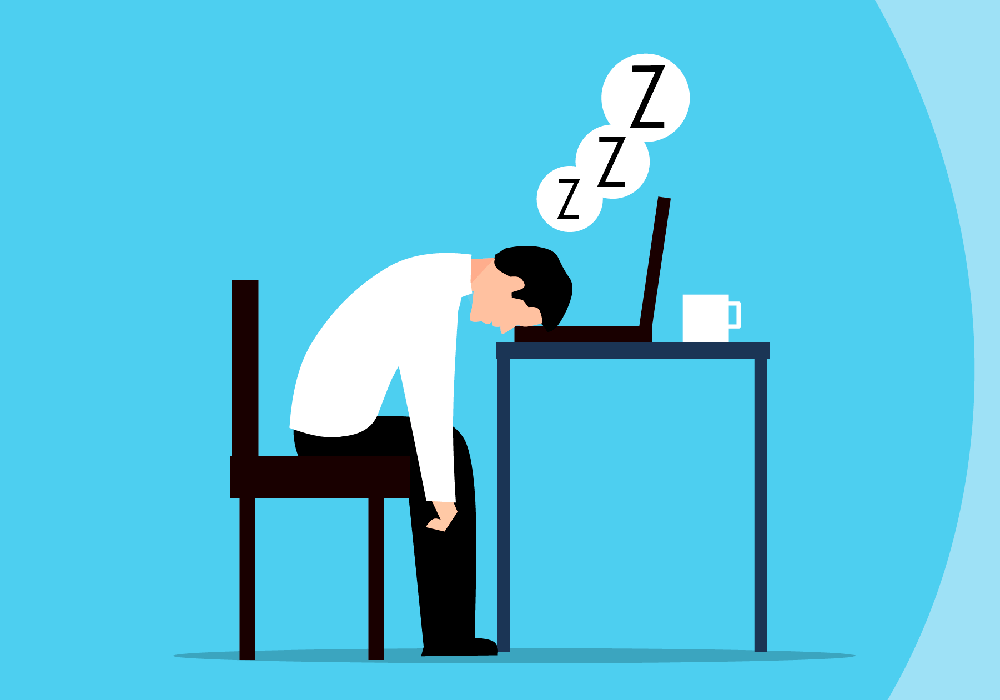
Dr Eva Ehlich & Angela Zumstein in the series

The question of which communication channels people trust more in the case of inconsistent messages was investigated in a number of studies conducted by the Iranian-American psychologist Albert Mehrabian. His formula, repeatedly replicated, according to which 7% of people trust the spoken word, 38% trust vocal expression and 55% trust body language, demonstrates the importance of non-verbal communication channels that are often lost in virtual settings. (1)
The Enlarged Board of Appeal of the EPO will soon decide on an interesting question: may oral proceedings before the EPO in principle be conducted by videoconference, even against the will of the parties?
In May 2020, no one would have expected that appeal case T 1807/15 would lead to a landmark decision. After all, it only related to the maintenance (or not) of a patent relating to a radio frequency amplifier, a routine type of case at the EPO.
But this case was only the first in a long line of similar cases. Since the first Corona wave began in 2020, quite a few oral hearings at the EPO have had to be postponed. The oral proceedings were finally scheduled for February 2021. But not entirely surprisingly, the representative of the London-based patent proprietors requested that the oral proceedings be postponed once again. The reason? He was prevented from attending in person on account of the prevailing Corona situation and the ongoing travel restrictions between Germany and the UK. A videoconference was also deemed impracticable – the case would after all require simultaneous translation. This also seemed to make sense to the opposing party, who shortly afterwards expressed its objection to the oral proceedings being conducted via videoconference.
Up to that point, conducting oral proceedings via videoconference was contingent on the consent of the parties. However, statistical evidence shows that little use was made of videoconferencing. As a result, the backlog of pending first instance proceedings continued to grow, because the Corona restrictions had led to a stay of almost all proceedings.
How to clear a Corona backlog? – 360 decisions per month!
The rapidly growing backlog was and is frustrating for the EPO administration – especially considering the successes that had already been achieved and the shorter first instance appeal procedures in the years immediately preceding the Corona pandemic.
If the current backlog is to be eliminated by the end of 2022, about 360 cases per month will need to be dealt with. This is stated in the progress report of November 2020. The report concludes by recommending that oral proceedings be conducted via videoconferencing, with or without the consent of the parties. (2) Per decision of 10 November 2020, the President of the EPO followed this recommendation.
A bumpy start
We need to take ourselves back to March 2020 when the “Corona crisis” more or less officially began. The first wave rolled in. People started social distancing. Meetings were cancelled.
For a variety of reasons, it became difficult to conduct oral hearings with physical presence. These include, in particular, travel restrictions, general social distancing restrictions and hygiene measures. This was true for small businesses as well as for large institutions. However, while the Boards of Appeal still continued to conduct oral proceedings with physical presence under strict hygiene conditions, the EPO had already suspended such hearings until 31 December 2020, later extended to 15 September 2021.
Unlike the Office, during the year 2020 the Boards of Appeal conducted oral proceedings in different formats, either
- with the parties present in person
- with the parties connected by videoconference, or
- in a hybrid setting.
In December 2020, the President of the Boards of Appeal nevertheless requested the Boards of Appeal Committee to add a new Article 15a to the Rules of Procedure of the Boards of Appeal.
This is also consistent with the decision of the EPO President. Article 15a specifies that the Boards of Appeal may in principle conduct oral proceedings under Article 116 EPC via videoconference without the consent of the parties. The Boards of Appeal Committee made an ordinance to this effect and the Administrative Council approved the new Article on 23 March 2021. However, this measure is not subject to any time limit and is therefore not only limited to the period of the pandemic.

The virus says, „What do I care about the law?”
Running in parallel to the proceedings at the Office and at the Boards of Appeal just described, the radio amplifier case mentioned above moved along. Here, too, the key question was whether oral proceedings may be held via videoconference even against the will of the parties. Hitherto it was normal for oral proceedings before the Divisions or Boards of Appeal to be held with the parties physically present – which seems reasonable in view of the often technically and legally complex issues involved. But Covid is no respecter of institutions, and this includes the EPO. What do viruses care about legislative acts?
The Board of Appeal responsible for this case now referred an important question to the Enlarged Board of Appeal, the highest tribunal for the interpretation of the European Patent Convention (EPC). The question was put without reference to the new Article 15a of the Rules of Procedure of the Boards of Appeal:
Does the EPC, specifically Article 116 EPC, allow oral proceedings to be conducted via videoconference against the will of the parties?
Should the Enlarged Board of Appeal come to the conclusion that the EPC would not allow this, not only Article 15a of the Rules of Procedure, but also the measures taken by the Office to combat the effects of the pandemic would be nullified, pure and simple.
It is, of course, unfortunate that such fundamental questions are being decided in the current heightened atmosphere caused by the pandemic. But it is equally understandable that extraordinary measures are needed right now in order to avoid, as far as possible, judicial gridlock. In any case, it seemed that with the different formats the Boards of Appeal had found a good middle ground, without forcing the parties to participate in videoconferencing. The Boards of Appeal conducted oral proceedings either with parties physically present, with participants connected via videoconference or as a hybrid hearing.
Article 15a of the Rules of Procedure may now compel the parties to participate in a videoconference. Moreover, it is also a permanent arrangement. It is not unlikely that even after the pandemic is over, it will also be applied analogously for first instance proceedings. In other words, its rationale is not based solely on the current crisis situation.
However, many legal questions arise here. Is the issue of videoconferencing to be dealt with in the same way for administrative proceedings at the Office as for quasi-judicial appeal proceedings before the Boards of Appeal? Can exceptions be made in a pandemic situation, even if they concern something as fundamental as the right to an oral hearing?
We’ll keep you posted!

Opinions pro and contra – and everything in between
We will now briefly outline the arguments currently circulating pro and contra oral proceedings conducted via videoconference. We will also briefly present “hybrid forms” of oral proceedings. All arguments are taken from the wider world of opinion and present an open – but by no means conclusive – landscape for discussion:
Pro
- Technische Probleme, wie Simultandolmetschen und die gleichzeitige Teilnahme mehrerer Parteien, seien zwischenzeitlich durch Videokonferenz-Plattformen gelöst (3)
- „Durch die Möglichkeit, das eigene Mikrofon abzuschalten, können Beteiligte einer Partei auch während der mündlichen Verhandlung miteinander diskutieren“ (3)
- Auch komplexe Sachverhalte können in einer Videokonferenz demonstriert werden, z.B. durch das Teilen des Bildschirms eines Teilnehmers.
- Verfahren nach dem Europäischen Patentübereinkommen sind in erster Linie als schriftliche Verfahren konzipiert. Demnach stelle Art. 116 EPÜ sicher, dass die Parteien auch die Möglichkeit einer mündlichen Darstellung des Falles erhalten. Daher sei jedes Format der mündlichen Verhandlung akzeptabel, das dieses Ziel angemessen erreichen lässt. (4)
- Die Rechtsprechung im Rahmen der Europäischen Menschenrechtskonvention sei ein lebendiges Instrument […], das im Lichte der heutigen Bedingungen interpretiert werden muss. (4)
- Mündliche Verhandlungen können nicht einfach auf unbestimmte Zeit verschoben werden. „Das gebieten die Rechtssicherheitsinteressen von Verfahrensbeteiligten wie von Dritten” (5)
- Es bestehe ein „Interesse der Parteien, möglicher Wettbewerber und der Öffentlichkeit, dass die Klärung der Schutzrechtslage nicht über Gebühr verzögert wird.“ (6)
- Die Dauer der Verfahren könne in Grenzen gehalten werden. (3)
- Die Pandemie hat mündliche Präsenzverhandlungen erschwert. Aber durch Videokonferenzen konnten bereits viele Fälle ohne Infektionsrisiko abgeschlossen werden.
- Durch den Wegfall der Anreise zum Verhandlungsort werden Reisekosten und Zeit gespart.
- Es sei „für die Öffentlichkeit einfacher, Verhandlungen zu verfolgen“. Das sei ein großer Vorteil. (3)
- Der CO2- Fußabdruck wird reduziert. (6)
- Ein Videoverfahren verstärke zudem jene „Transparenz des Beschwerdekammersystems des EPA und trägt zu vertieftem Wissen über das europäische Patentsystem und erhöhter Akzeptanz der Entscheidungen bei internationalen Anmeldern – und damit letztendlich auch zu verbesserter Qualität von neuen Patentanmeldungen“ – bei. (6)
- Videokonferenzen würden die Zugänglichkeit erheblich verbessern und bessere Ergebnisse liefern […], schneller und zu geringeren Kosten für alle. (7, Richard Mair, CIPA-Präsident)
- Es sinke „die Schwelle für die Teilnahme von mehreren Vertretern oder Mitgliedern der Parteien an der Verhandlung […], wodurch die Transparenz der Verfahren erhöht werden kann und von den Einspruchsabteilungen getroffene Entscheidungen durch die Parteien besser eingeordnet werden können.“ (3)
Zusammenfassung
Viele Punkte sind gar nicht einmal auf die durch die Pandemie verursachte Krisensituation zurückzuführen. Nein, gerade die Zeit-, CO2- und Kostenersparnis sowie die technischen Möglichkeiten und die vereinfachte Teilnahme stechen hervor.
Contra
- Das Format einer Videokonferenz sei mit dem in Artikel 116 Abs. 1 EPÜ vorgesehenen Konzept der mündlichen Verhandlung nicht vereinbar. (4)
- In Art. 116 EPÜ sei ausdrücklich von einer mündlichen Verhandlung die Rede. „Die Möglichkeit der Durchführung per Videokonferenz ist im Gesetz selbst nicht vorgesehen“ (8)
- Der Terminus mündliche Verhandlung vor der jeweiligen Abteilung in Art. 116 EPÜ beziehe sich auch auf den Ort, an dem die mündliche Verhandlung abgehalten werden muss. (8)
- „Eine derart extensive Auslegung der Terminologie «mündliche Verhandlung»“ entspreche „weder dem Sinn und Zweck des Gesetzes oder der bewährten Rechtspraxis noch kann diese durch die gegenwärtige Pandemie legitimiert werden.” (8)
- Videokonferenzen könnten gegen das in Art. 21 EPÜ verankerte Kollegialsystem verstoßen. „Die Erfahrung mit VICOs in erster Instanz zeigt, dass die Verhandlung sich häufig auf eine Diskussion mit dem Berichterstatter beschränkt, der sich am eingehendsten mit der Sache befasst hat.“ (9) Zweitinstanzlich sollten jedoch alle Mitglieder die gleiche Verantwortung für die zu treffende Entscheidung tragen – was eine Auseinandersetzung im Dialog miteinander und den Beteiligten voraussetze. (6)
- Präsenzverhandlungen sind eine langjährige Praxis.
- Der Beschluss des EPA-Präsidenten könne „unter Umständen zu einer Verletzung des rechtlichen Gehörs im Sinne von Art. 113 EPÜ bzw. Art. 6 Ziff. 1 EMRK” führen, wenn die mündliche Verhandlung gegen den Willen des Patentanmelders per Videokonferenz durchgeführt werde. (8)
- Eine instabile/unterbrochene Internetverbindung oder fehlende Datensicherheit könnten zum Problem werden. Technische Probleme könnten aber zu einer Waffenungleichheit führen. (8)
- Durch den gerichteten Blick der Kamera könne es in manchen Situationen dazu kommen, den Sprecher schwerer zuzuordnen oder Interaktionen der Mitglieder der Einspruchsabteilung zu verfolgen. (3)
- Es gebe zeitliche Verzögerungen in der Simultanübersetzung. (10)
- Man müsse keine Videokonferenzen abhalten. Es stünden genügend alternative Maßnahmen zur Reduzierung der Ansteckungsgefahr zur Verfügung. (8)
- Es bestehe das Risiko, dass der Fall aufgrund von Kommunikationsbarrieren nicht adäquat behandelt wird. (10)
- Die Relevanz einer mündlichen Verhandlung werde im Fall von Videokonferenzen geringer. Dadurch werde das gesamte Verfahren in ein eher „schriftliches Verfahren“ umgewandelt. (10)
- Auch psychologische Aspekte wie nicht sichtbare Gesten oder Mimik können Einfluss auf das Ergebnis der Verhandlung haben.
- Die Aufmerksamkeitsspanne und das Aufnahmevermögen könnten geringer ausfallen. (11)
- Durch das zwischengeschaltete Medium komme es zu einer Distanzierung. Dadurch sei zu befürchten, dass sich die Einspruchsabteilung nicht mehr so offen gegenüber den Argumenten der Beteiligten verhält und somit lieber auf Ihrer vorläufigen schriftlichen Meinung beharrt. (3)
- Die Atmosphäre oder Nuancen der Argumentation können verloren gehen. Durch den fehlenden direkten Blickkontakt kann das Gegenüber schlechter eingeschätzt werden, was zu anderen Verfahrensverläufen führen kann.
- Eine bereits bestehende vorläufige Meinung der Einspruchsabteilung könnte in Videokonferenzen schwerer zu drehen sein. (11)
- Durch die Distanzierung könne es dazu kommen, dass Gesprächsregeln nicht eingehalten werden. (3)
- Ein Richter könnte sich in einem Gerichtssaal für seine Entscheidung verantwortlicher fühlen. (6).
Zusammenfassung
Am wichtigsten wiegen wohl die psychologischen Aspekte. Eine mündliche Verhandlung steht am Ende eines langen Verfahrens und ist das finale Element vor der Entscheidung. Es besteht die Befürchtung, dass eine durch technische Einschränkungen bedingte schwächere Präsentation der Fakten und Argumente die Entscheidung unglücklich beeinflussen könnte. Eine Videokonferenz wird gegenüber einer Verhandlung mit physischer Präsenz nicht als gleichwertig empfunden.
Meinungen dazwischen
- Für viele sind auch „hybride Verhandlungen“ denkbar, in denen unterschiedliche Teile des Prozesses in unterschiedlichen Formaten abgehalten werden können.
- Vor allem die technischen Erfahrungen der Teilnehmer mit Videokonferenzen variieren stark. Viele wollen deswegen nicht zu Videokonferenzen gezwungen werden.
- Aber vielerorts heißt es eben auch: Wenn alle beteiligten Parteien damit einverstanden sind, ein Verfahren per Videokonferenz abzuhalten, ist das für mich in Ordnung (10)
Weitere Meinungen
Sonstige Punkte finden Sie z.B. in der EPLIT-Umfrage zur mündlichen Verhandlung per Videokonferenz (10) oder im Blog von Wolters Kluwer (7).
Form your own opinion! We are looking forward to discussing with you on LinkedIn!

Psychological aspects of videoconferencing – Please don’t nod off! 😉
As the quote at the beginning of our article already shows, the psychological dimension of videoconferencing should not be underestimated. What gets lost in a videoconference? How does a viewer’s or speaker’s behaviour differ from that of persons physically present? And with videoconferencing is there a risk of fatigue setting in? Interesting expert interviews & articles on this topic can be found under the following links:
Interview mit Christian Korunka und Katrin Schoenenberg (Zeit.de)
Interview mit Johanna Schäwel und Alexander Raake (Welt.de)
Artikel über Grenzen der Online-Kommunikation (Sebastian Kunert)
Zusammenfassung
Die Beteiligten sollten sich dessen bewusst sein: Die Kommunikation mittels Videokonferenz erfordert andere Kommunikationsformen. Es ist nicht auszuschließen, dass unsere Gesellschaft Kommunikationsmechanismen entwickeln wird, die eine gleichwertige Konversation über Video ermöglichen werden. Das wird jedoch erst die Zeit zeigen, derzeit ist dies noch nicht der Fall. Die Technik steht hier sicher erst noch am Anfang, genau wie die Menschen, die sie bedienen – auch wenn die Pandemie viele Entwicklungen beschleunigt hat.
Mündliche Verhandlungen in Patentstreitigkeiten vor dem EPA können äußerst komplex sein – nicht nur technisch und rechtlich, sondern auch sprachlich. Die Kommunikation weiter zu erschweren und zu verkomplizieren, scheint vor diesem Hintergrund recht gewagt. Ansonsten enden wir u.U. wie Bill Murray nicht nur „lost in translation“ sondern auch „in lost communication“. Bei aller gewonnenen Transparenz und CO2- Ersparnis würde das dem Patentsystem nicht guttun.

Is the planned amendment to the law in conformity with the EPC?
Opinions differ here. Article 116 of the European Patent Convention provides the basis for the right to an oral hearing.
Two decisions. Two opinions.
The previously mentioned Board of Appeal came to the following conclusion in T1807/15:
“In the Board’s view, just because the EPC has not explicitly defined the format of oral proceedings does not necessarily mean that the term “oral proceedings” in Article 116 EPC should be construed so broadly as to encompass videoconferences…”
Another Board of Appeal came to the exactly opposite conclusion in T2320/16:
„As noted in the foregoing, the board finds that oral proceedings by videoconference are consistent both with the literal interpretation and with the legislative intent underlying Article 116 EPC 1973 and 2000.”
The Enlarged Board of Appeal will have to look into this carefully.
The right to an oral proceeding according to Art. 116(1) EPC is a fundamental procedural right of the parties. However, not only the EPC itself, but also the European Convention for the Protection of Human Rights and Fundamental Freedoms (ECHR), whose contracting states even extend beyond the territory of the EPC, secures this procedural right with the requirement of a fair hearing in Art. 6(1). An amendment, as provided for by Article 15a of the Board of Appeal Ordinance, should be reserved for a diplomatic conference, if this amendment is possible at all.
The President of the Boards of Appeal has already expressed his opinion on this, since the proposal to amend the Rules of Procedure of the Boards of Appeal came from him. It remains to be seen whether he can now decide on this issue impartially as Chairman of the Enlarged Board of Appeal. The Administrative Council has just adopted the amendment. In the communication of 24 March 2021, the President of the Office stated that despite pendency before the Enlarged Board of Appeal, proceedings before the Office will continue to be conducted via videoconference, even against the will of the parties and against the usual practice of suspending the proceedings. The hearing in the case before the Enlarged Board of Appeal will take place on 28 May 2021 in the form of a video conference. One almost gets the impression that the decision has already been made.
People can certainly have different opinions on the matter. Exceptional circumstances require exceptional remedies. And no one denies that videoconferencing has its advantages, contributes to the efficiency of the judicial system, and for the moment alleviates the gridlock in the administration of justice. However, there seems to be no justification at present for mandating videoconferencing for the time after the pandemic. Nevertheless, it is not unrealistic to think that the pandemic will now irrevocably determine events far into the future. At present, permanent restructuring of oral proceedings is under contemplation. Shouldn’t the measures relating to the pandemic be kept separate from this?
What is your view? We are looking forward to discussing with you on LinkedIn!

Sources
1. Grenzen der Online-Kommunikation, Sebastian Kunert, https://www.coaching-magazin.de/beruf-coach/grenzen-der-online-kommunikation, 2020, downloaded on 12.04.21
2. Opposition oral proceedings by videoconference in the context of COVID-19, Europäisches Patentamt, http://documents.epo.org/projects/babylon/eponet.nsf/0/BF708885F3F0AA38C125861C0055BC88/ $File/opposition_oral_proceedings_by_videoconference_in_the_context_of_covid-19_-_progress_report_en.pdf, November 2020, downloaded on 07.04.21
3. Business as usual – jedenfalls fast, Philipp Nordmeyer, https://www.deutscheranwaltspiegel.de/intellectualproperty/covid-19/business-as-usual-jedenfalls-fast-21962/, 20.11.20, downloaded on 25.03.21
4. T 1807/15 (Oral proceedings in the form of a videoconference) of 12.3.2021, European Patent Office, https://www.epo.org/law-practice/case-law-appeals/recent/t151807eu1.html, 12.03.21, downloaded on 25.03.21
5. User consultation on an amendment to the Rules of Procedure of the Boards of Appeal (RPBA 2020) – insertion of new Article 15a (oral proceedings by videoconference), Hansjörg Kley, https://www.kley.ch/hansjoerg/patrecht/br_epa_2020Z11EP_2020-11-23.pdf, 23.11.20, downloaded on 25.03.21
6. Nutzerbefragung zur Änderung der Verfahrensordnung der Beschwerdekammern durch Einfügung eines neuen Artikel 15a, „Johannes Lang, Tobias Kaufmann“, https://www.bardehle.com/de/ip-news-wissen/kanzlei-news/news-detail/nutzerbefragung-zur-aenderung-der-verfahrensordnung-der-beschwerdekammern-durch-einfuegung-eines-neuen-artikel-15a-muendliche-verhandlung-als-videokonferenz, 01.12.20, downloaded on 25.03.21
7. Response to EPO consultation: Don’t impose oral proceedings by videoconference, Kluwer Patent blogger, http://patentblog.kluweriplaw.com/2020/12/02/response-to-epo-consultation-dont-impose-oral-proceedings-by-videoconference/, 02.12.20, downloaded on 25.03.21
8. Von Pandemien und mündlichen Verhandlungen per Videokonferenz, Claudia Erbsmehl, https://www.thomannfischer.ch/de/ueber-uns/aktuell.html, 21.12.20, downloaded on 25.03.21
9. Stellungnahme zu mündlichen Verhandlungen per Videokonferenz im EPA, Patentanwaltskammer, https://www.patentanwalt.de/files/pak/pdf/kammer/stellungnahmen/4_2020_Stellungnahme_1.pdf, 15.07.2020, downloaded on 07.04.21
10. Survey on Oral Proceedings by videoconference, EPLIT, http://www.eplit.eu/wp-content/uploads/2020/11/EPLIT-Survey-on-Oral-Proceedings-by-videoconference-20201123.pdf, 20.12.20, downloaded on 25.03.21
11. EPA-Beschluss zu mündlichen Verhandlungen per Videokonferenz, „Dr. Arwed Burrichter, Mathias Karlhuber, Dr. Natalie Kirchhofer“, https://www.cohausz-florack.de/blog/artikel/epa-beschluss-zu-muendlichen-verhandlungen-per-videokonferenz/, 12.11.20, downloaded on 25.03.21